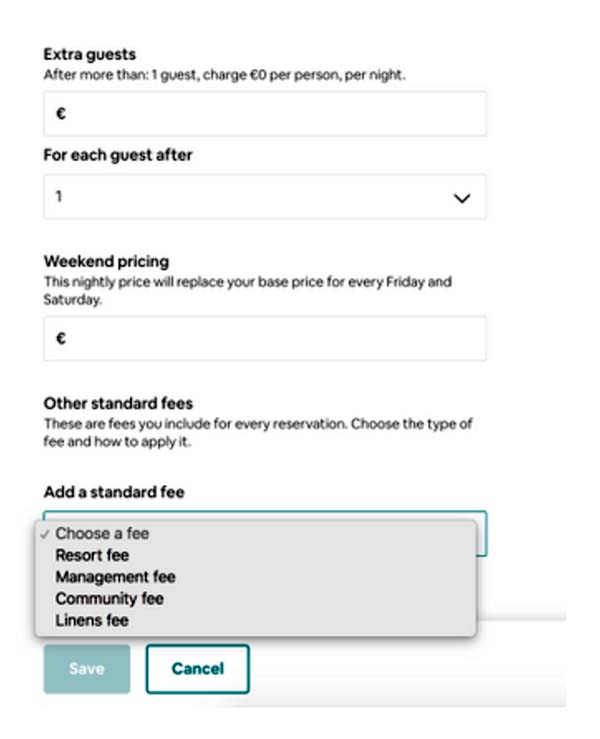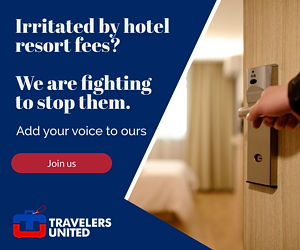No lodging truth-in-advertising laws enforcement allows Airbnb and VRBO to add mandatory fees just like hotels…finally we asked the State AGs for help.

For the past decade, hotels have begun to add mandatory resort fees to their room rates. These new fees have allowed hotels to skirt lodging truth-in-advertising laws. The FTC actions have been shameful. Lack of enforcement of basic false advertising rules has resulted in an increase in lawbreakers.
Today, in the age of COVID-19, hotel room rates are dropping, but resort fees are rising or at least staying the same. That is a fairness problem. When resort fees cost more than the hotel, as they sometimes do, it is a big problem. It translates to fake room rates and irritated consumers.
With vaccines introduced, the pandemic is losing its grip on you. Soon, you’ll be able to travel again, at least domestically. But, hotels and home-rental operations will continue to fleece you, the American public. Let’s get the FTC to enforce truth in advertising.
FTC was the first place Travelers United went to get protection from misleading advertising
Travelers United began this crusade against false advertising at hotels over a decade ago after Vegas hotels introduced resort fees. Our organization asked the FTC to put a stop to what we considered unfair and misleading practices. Even other hoteliers at the time, around 1998, battled over hotel resort fees. Lodging truth in advertising was the ultimate casualty.
Harrahs ran an advertising campaign against MGM Grand, which was charging resort fees. Harrahs’ multimillion-dollar campaign claimed that MGM Grand was advertising incomplete room rates by adding a mandatory resort fee to a reduced room rate.
Consumers perceived that MGM rooms were a better bargain than Harrahs, where room rates included the same amenities for a higher rate. Though the lodging products were the same, the advertising of a better room rate made MGM appear to be less expensive. This was clearly false advertising; however, the FTC allowed it to continue.
Harrahs spent millions of dollars on advertising to show the dishonesty of the resort-fee model, all to no avail. Eventually, the corporation gave up and began to charge similar “resort fees.” Consumers ended up losing. The keepers of advertising honesty were asleep at the switch. And, they still are.
FTC is still doing nothing after more than a decade after we asked them about resort fees.
Today it is the FTC that is not doing anything to stop the pernicious practice of hotel resort fees. The lack of truth in advertising enforcement has seen the scourge of resort fees continue to increase. The increases come at the fastest rate in history and expand to even motel establishments. And — even more harmful to consumers — the home-sharing markets of Airbnb, VRBO, and so on are beginning similar false advertising. They now spread the lack of lodging truth in advertising to vacation home rentals as well as hotels.

Airbnb, VRBO, and other hotels are charging unadvertised fees now
Whenever the government, the FTC, or the courts give for-profit businesses room to fudge on advertising, they normally drive a truck through the loophole they discover. Hotels and other lodging establishments will strive to find a way to mislead consumers. The lack of any truth-in-advertising enforcement for hotel advertisers from the FTC has resulted in home-sharing operations listing “resort fees” and “management fees” separately for Airbnb owners.
MORE ON TRAVELERS UNITED: When is a best-room-rate a scam? Plus, more hotel lies

This administration seems much more consumer-oriented. The Biden administration may develop rules that guarantee truth in advertising. We are pushing them to do just that. It has been four years since the FTC study said the use of unadvertised resort fees harms consumers. It is time that resort fees are included in overnight room rates.
The final FTC report shows consumer harm, but the commission does nothing
Here is the conclusion of the FTC 2017 Economic Report: Separating the hotel resort fees from room rates harms consumers.
Forcing consumers to click through additional webpages to see a hotel’s resort fee increases the cost of learning the hotel’s price. Separating the room rate from the resort fee increases the cognitive costs of remembering the hotel’s price. When it becomes more costly to search and evaluate an additional hotel, a consumer’s choice is either to incur higher total search and cognitive costs or to make an incomplete, less informed decision that may result in a more costly room, or both.
Hotels could eliminate these costs to consumers by including the resort fee in the advertised price.
…
In sum, the literature suggests that separating mandatory resort fees from posted room rates without first disclosing the total price is likely to harm consumers by artificially increasing the search costs and the cognitive costs of finding and booking hotel accommodations. Unless the total price is disclosed up front, separating resort fees from the room rate is unlikely to result in benefits that offset the likely harm to consumers.
READ ALSO ON TRAVELERS UNITED: This is the dirty truth about cleaning fees on vacation
The State AGs move into the vacuum left by dereliction of the FTC
The Attorneys General from Nebraska, Pennsylvania, and the District of Columbia have all engaged with hotel companies about resort fees. Travelers United has filed a lawsuit against MGM Resorts as well. And, finally, we got action. A post only two weeks ago, ‘Why Marriott must include ‘Resort Fees’ in advertised room rates”, outlines the settlement that Marriott agreed to with the Pennsylvania AG. Now, what will other chains do about truth in advertising?
Travelers United will be monitoring this victory. The settlements which have been negotiated between Marriott and the Pennsylvania AGs office will be watched carefully. As we have for the past decade, Travelers United will be out front in these hotel resort fee disclosure efforts.

Charlie Leocha is the President of Travelers United. He has been working in Washington, DC, for the past 14 years with Congress, the Department of Transportation, and industry stakeholders on travel issues. He was the first consumer representative to the Advisory Committee for Aviation Consumer Protections appointed by the Secretary of Transportation from 2012 through 2018.



